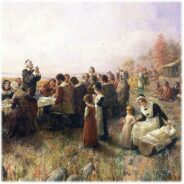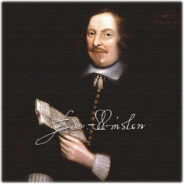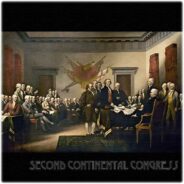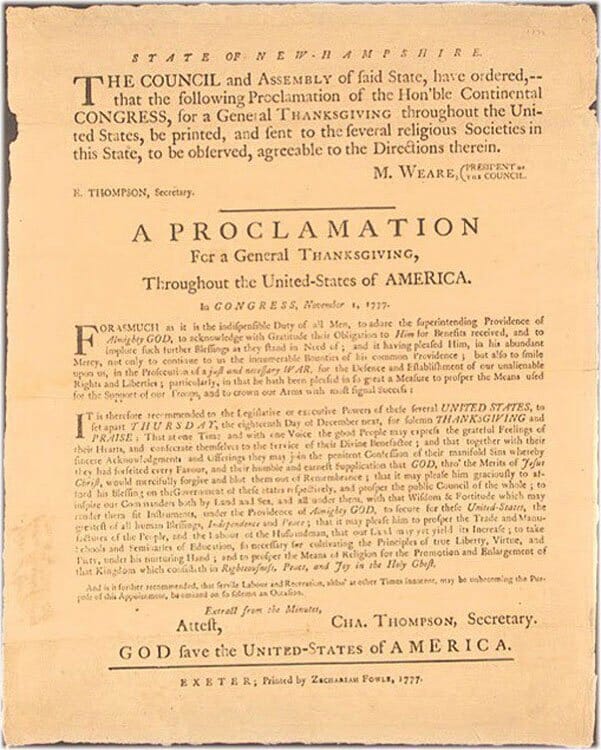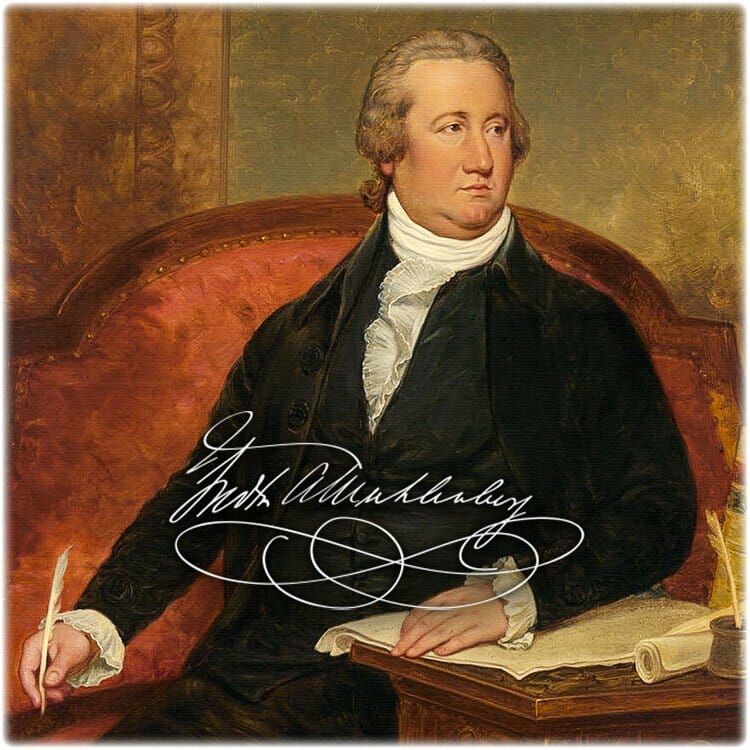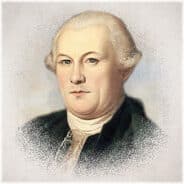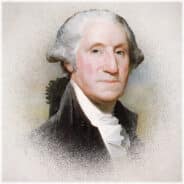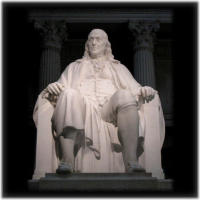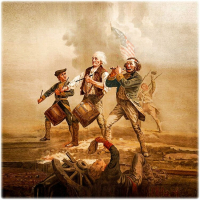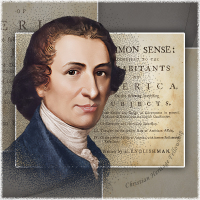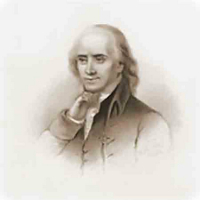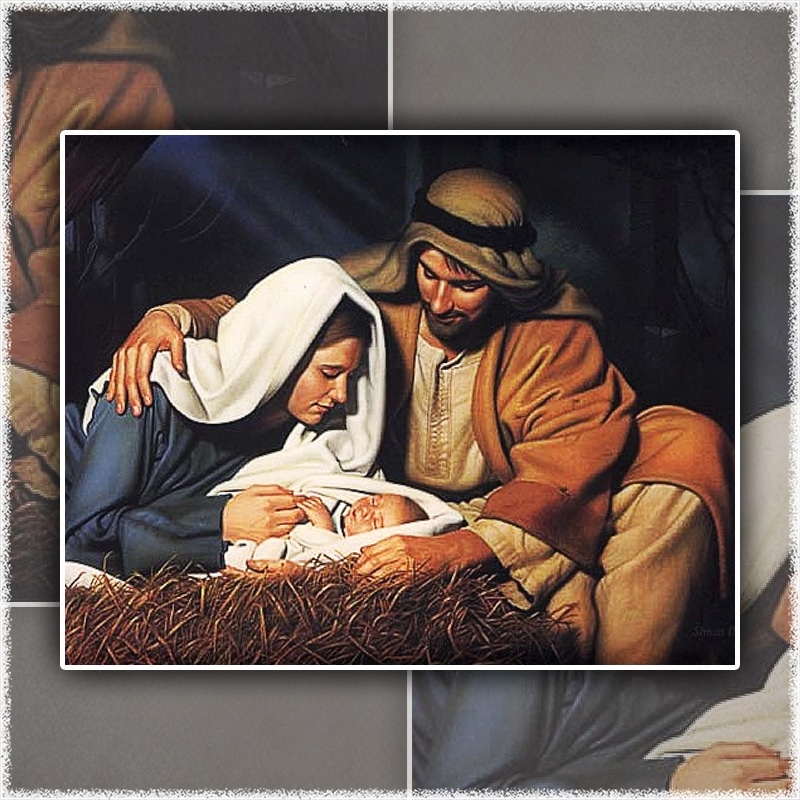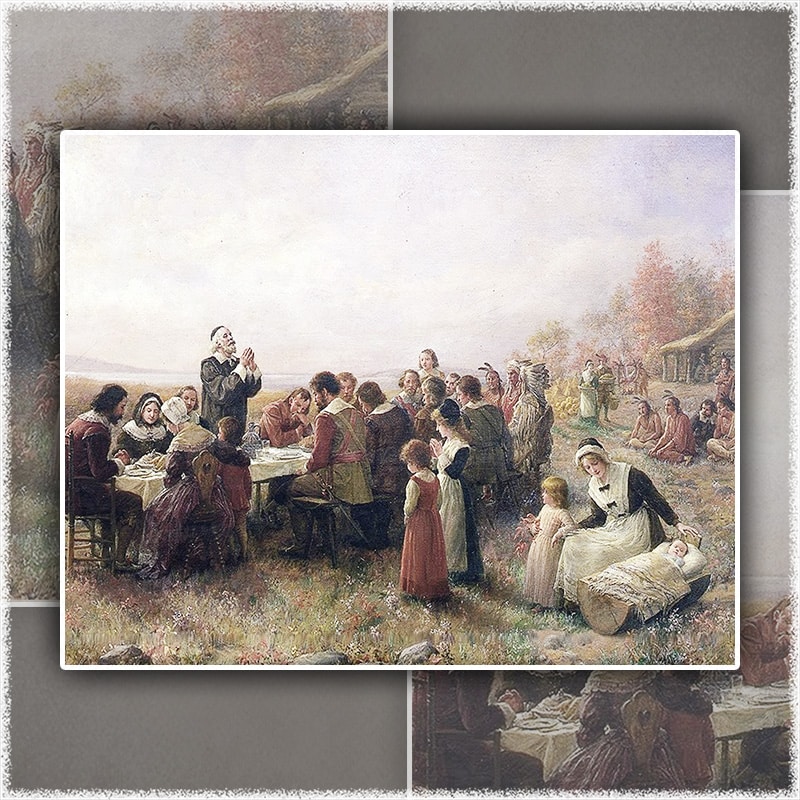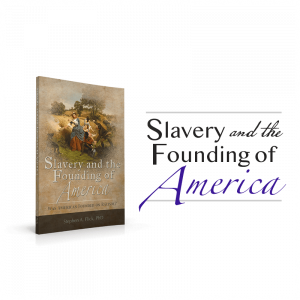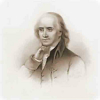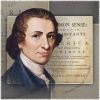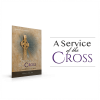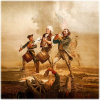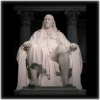Christianity and the First Presidential Thanksgiving Proclamation
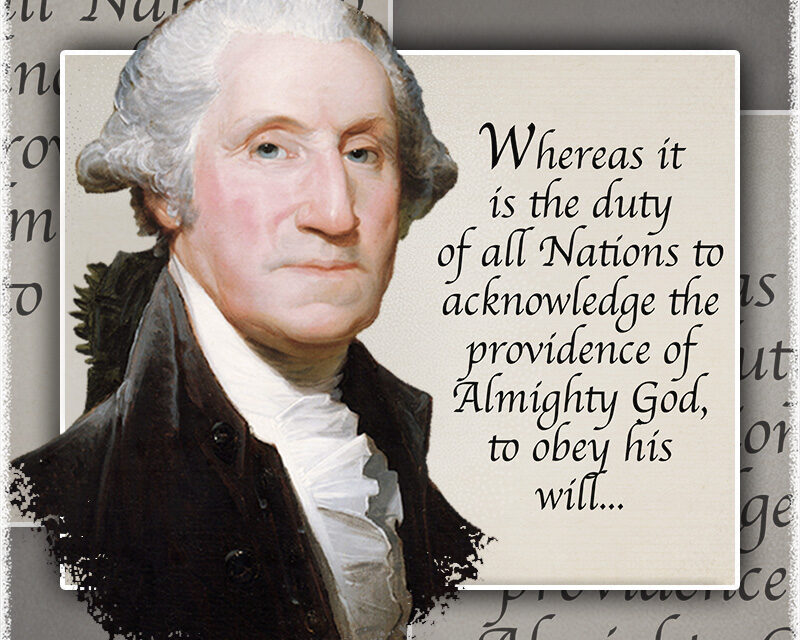
The first presidential thanksgiving proclamation under the United States Constitution was the result of a long list of Christian influences upon the founding of America. Contrary to those who rob America of its true history, Thanksgiving, like the vast majority of American holidays, is the result of many Christian influences. First Presidential Thanksgiving Proclamation
In an attempt to diminish and deny Christians their due credit for having founded America, secularists, atheists, and other forms of irreligion have vilified and ridiculed any manifestation of Christianity in American history. It is common for National Geographic, History Channel, and other secular writers to relate partial details concerning historic events. In this way, Pilgrims, Puritans, and other Christian European settlers, being held up to half-truths or no truths, are made to appear as the villains who are constantly hatching their sinister plots against peace loving native American Indians.
The subject addressed in this article is discussed at greater length in America's Founding Fathers and the Bible. Christian Heritage Fellowship would be honored to work with individuals, businesses, churches, institutions, or organizations to help communicate the truth concerning the positive influence of the Christian faith by providing bulk pricing: Please contact us here... To purchase a limited quantity of this publication, please click: Purchase here...
Article Contents
America Christian From the Beginning
From the beginning of English settlements in the New World, the Thirteen Colonies and subsequently, Thirteen States, were under the religious influence of Christianity. All of the charters giving permission to settle in America and the subsequent constitutions of each state all acknowledged Christian influence and obligations. In fact, the individual colonies and states all reflected this truth in the decisions of colonial and state government upon breaking with England.
The earliest form of the federal government under the United States Constitution began with the formation of the Continental Congress (1774 - 1789). A study of the minutes of the Continental Congress (which are known as the Journals of the Continental Congress) clearly reveals a deep commitment on the part of the members of the Continental Congress to the Christian faith. Beginning Congress with prayer, the establishment of government chaplains, numerous fast and thanksgiving proclamations, and a host of other facts make it evident that the earliest form of the American federal government had no intention of breaking with its well documented Christian colonial heritage.
One of the most vivid reminders of America's Christian origin is the first Thanksgiving of the Pilgrims in New England. As is true for many Christian influences relating to the origin of America, secularists and those seeking to revise American history to exclude its Christian origin, seek to minimize and mischaracterize the first Thanksgiving in Plymouth in 1621. In a letter to a friend, Edward Winslow described that event:
Our harvest being gotten in, our governor sent four men on fowling, that so we might after a more special manner rejoice together, after we had gathered the fruit of our labors; they four in one day killed as much fowl, as with a little help beside, served the company almost a week, at which time amongst other recreations, we exercised our arms, many of the Indians coming amongst us, and among the rest their greatest King Massasoit, with some ninety men, whom for three days we entertained and feasted, and they went out and killed five deer, which they brought to the plantation and bestowed on our governor, and upon the captain, and others. And although it be not always so plentiful, as it was at this time with us, yet by the goodness of God, we are so far from want, that we often wish you partakers of our plenty. We have found the Indians very faithful in their covenant of peace with us; very loving and ready to pleasure us: we often go to them, and they come to us . . .[1]
After 1630, Thanksgiving was observed annually and was common in the New England colonies.[2] But during the American Revolution, a new page was added to the history of Thanksgiving in America.
Continental Congress Observes Thanksgiving
The Thirteen Colonies formed the Continental Congress in a bid to win independence from England. The Continental Congress existed from 1774 to 1789 and was the beginning of the national or federal government of America. Particularly during the years of greatest tension between the two nations (1774 to 1783), the Continental Congress issued requests or proclamations to the original thirteen American states, asking them to fast and pray or offer thanksgiving to the Lord. These numerous requests were not uncommon, though it was the first time that a central government requested that states observe both Christian fasts and thanksgivings. Prior to the American Revolution, each colony issued its own proclamations for fast and thanksgiving days. When the Continental Congress began to observe this practice, it was only continuing what had been a practice among the individual colonies from the earliest decades of the founding of America.
One of the first thanksgiving proclamations was issued by Congress on Saturday, November 1, 1777, under the leadership of the newly elected President, Henry Laurens of South Carolina. The clear biblical influence upon the recommendation presented to Congress is evident. The thanksgiving proclamation read as follows:
The committee appointed to prepare a recommendation to these states, to set apart a day of thanksgiving, brought in a report; which was agreed to as follows:
Forasmuch as it is the indispensable duty of all men to adore the superintending providence of Almighty God; to acknowledge with gratitude their obligation to him for benefits received, and to implore such farther blessings as they stand in need of; and it having pleased him in his abundant mercy not only to continue to us the innumerable bounties of his common providence, but also to smile upon us in the prosecution of a just and necessary war, for the defense and establishment of our unalienable rights and liberties; particularly in that he hath been pleased in so great a measure to prosper the means used for the support of our troops and to crown our arms with most signal success: It is therefore recommended to the legislative or executive powers of these United States, to set apart Thursday, the eighteenth day of December next, for solemn thanksgiving and praise; that with one heart and one voice the good people may express the grateful feelings of their hearts, and consecrate themselves to the service of their divine benefactor; and that together with their sincere acknowledgments and offerings, they may join the penitent confession of their manifold sins, whereby they had forfeited every favor, and their humble and earnest supplication that it may please God, through the merits of Jesus Christ, mercifully to forgive and blot them out of remembrance; that it may please him graciously to afford his blessing on the governments of these states respectively, and prosper the public council of the whole; to inspire our commanders both by land and sea, and all under them, with that wisdom and fortitude which may render them fit instruments, under the providence of Almighty God, to secure for these United States the greatest of all human blessings, independence and peace; that it may please him to prosper the trade and manufactures of the people and the labor of the husbandman, that our land may yet yield its increase; to take schools and seminaries of education, so necessary for cultivating the principles of true liberty, virtue and piety, under his nurturing hand, and to prosper the means of religion for the promotion and enlargement of that kingdom which consisteth 'in righteousness, peace and joy in the Holy Ghost.'[3]
Fast and thanksgiving day proclamations of the Continental Congress were distributed to the individual states with the expectation 'that servile labor, and such recreation as, though at other times innocent, may be unbecoming the purpose of this appointment, be omitted on so solemn an occasion.'[4] The appeals of Congress concerning this days were recommendations 'to Christians of all denominations.'[5] These were not recommendations to other religions outside the Christian faith. When Congress used the term 'religion', it was a reference to Christianity in general, without concern to a specific Christian denomination. It was the custom of Congress, when issuing proclamations for fast days or thanksgiving days, to suspend business for those days they had appointed for special observance of fasting or offering thanksgiving. Unlike the secularism that has come to characterize a significant portion of America's contemporary military, 'the army under Washington observed . . . [fast and thanksgiving days] with devout reverence.'[6]
Congress and Thanksgiving Under the Constitution
On April 1, 1789, the United States House of Representatives convened for the first time, selecting Frederick Augustus Muhlenberg, a Lutheran minister, as their First Speaker of the House of Representatives. One representative from New Jersey was Elias Boudinot, a lawyer and former president of the Continental Congress from November 4, 1782 to November 3, 1783. In 1816, Elias Boudinot was elected the first president of the American Bible society, and the first vice president of the Society was America's first Chief Justice of the Supreme Court, the Honorable John Jay.
During the American Revolution, Boudinot threw his life's energy into the cause of American independence. In 1775, he was elected to the New Jersey provincial assembly, and like all patriots, his thoughts were continually upon the support of the American cause. As the War of Independence was engaged, he loaned field commanders money to purchase desperately needed supplies for American forces and actively supported the efforts of American spies. His participation in the Committee of Correspondence no doubt was the natural bridge for Boudinot's entrance into American spying efforts.
With American independence won, Boudinot returned to his law practice, but, like George Washington, he was called once again to serve his country. Once the United States Constitution was ratified in 1789, he was elected from New Jersey to the United States House of Representatives to serve in the First, Second, and Third Congresses (from March 4, 1789 to March 3, 1795), but refused to be re-nominated for the Fourth Congress. The same year he stepped down from Congress, President Washington nominated him as the second Director of the Mint, in which capacity he served from 1795 to 1805.
One of Boudinot's legacies to America occurred during his first term in the House of Representatives. On Friday September 25, 1789, Mr. Boudinot made a motion on the floor of the House of Representatives that would eventually help establish America's annual Thanksgiving. Congress having completed sanctioned the amendments that would become the Bill of Rights earlier that same day, Boudinot called upon his fellow members of Congress to return thanks to God for having settled the nation in the new form of government. The details of his motion are part of the records of Congress:
Mr. Boudinot said, he could not think of letting the session [of Congress] pass over without offering an opportunity to all the citizens of the United States of joining, with one voice, in returning to Almighty God their sincere thanks for the many blessings he had poured down upon them. With this view, therefore, he would move the following resolution:
Resolved, That a joint committee of both Houses [the Senate and House of Representatives] be directed to wait upon the President of the United States, to request that he would recommend to the people of the United States a day of public thanksgiving and prayer, to be observed by acknowledging, with grateful hearts, the many signal favors of Almighty God, especially by affording them an opportunity peaceably to establish a Constitution of government for their safety and happiness.
Mr. Burke did not like this mimicking of European customs, where they made a mere mockery of thanksgivings. Two parties at war frequently sung Te Deum for the same event, though to one it was a victory, and to the other a defeat.
Mr. Boudinot was sorry to hear arguments drawn from the abuse of a good thing against the use of it. He hoped no gentleman would make a serious opposition to a measure both prudent and just.
Mr. Tucker thought the House had no business to interfere in a matter which did not concern them. Why should the President direct the people to do what, perhaps, they have no mind to do; They may not be inclined to return thanks for a Constitution until they have experienced that it promotes their safety and happiness. We do not yet know but they may have reason to be dissatisfied with the effects it has already produced; but whether this be so or not, it is a business with which Congress have nothing to do; it is a religious matter, and, as such, is proscribed to us. If a day of thanksgiving must take place, let it be done by the authority of the several States; they know best what reason their constituents have to be pleased with the establishment of this Constitution.
Mr. Sherman justified the practice of thanksgiving, on any signal event, not only as a laudable one in itself, but as warranted by a number of precedents in holy writ [the Bible] : for instance, the solemn thanksgivings and rejoicings which took place in the time of Solomon, after the building of the temple, was a case in point. This example, he thought, worthy of Christian imitation on the present occasion; and he would agree with the gentleman who moved the resolution.
Mr. Boudinot quoted further precedents from the practice of the late Congress [and how this had been done on four occasions] ; and hoped the motion would meet a ready acquiescence.
The question was now put on the resolution, and it was carried in the affirmative; and Messrs. Boudinot, Sherman, and Sylvester were appointed a committee on the part of the House.[7]
First Presidential Thanksgiving Proclamation
As Commander of the American army during the Revolution, Washington had observed both fast days and thanksgiving days when they were proclaimed by the Continental Congress. Following a previously established practice of the states and the Continental Congress, President Washington quickly composed the first presidential thanksgiving proclamation. Only a few days after the Senate and House of Representatives submitted their request for a thanksgiving day for the 'favors of Almighty God, . . . [for the] opportunity peaceably to establish a form of government for their safety and happiness,' President Washington soon responded to the request of both houses of the newly formed United States Congress. On October 3, 1789, he issued the first presidential thanksgiving proclamation under the Constitution:
Whereas it is the duty of all nations to acknowledge the providence of Almighty God, to obey His will, to be grateful for His benefits, and humbly to implore His protection and favor; and Whereas both Houses of Congress have, by their joint committee, requested me "to recommend to the people of the United States a day of public thanksgiving and prayer, to be observed by acknowledging with grateful hearts the many and signal favors of Almighty God, especially by affording them an opportunity peaceably to establish a form of government for their safety and happiness."
Now, therefore, I do recommend and assign Thursday, the 26th day of November next, to be devoted by the people of these States to the service of that great and glorious Being who is the beneficent author of all the good that was, that is, or that will be; that we may then all unite in rendering unto Him our sincere and humble thanks for His kind care and protection of the people of this country previous to their becoming a nation; for the signal and manifold mercies and the favorable interpositions of His providence in the course and conclusion of the late war; for the great degree of tranquility, union, and plenty which we have since enjoyed; for the peaceable and rational manner in which we have been enable to establish constitutions of government for our safety and happiness, and particularly the national one now lately instituted for the civil and religious liberty with which we are blessed, and the means we have of acquiring and diffusing useful knowledge; and, in general, for all the great and various favors which He has been pleased to confer upon us.
And also that we may then unite in most humbly offering our prayers and supplications to the great Lord and Ruler of Nations and beseech Him to pardon our national and other transgressions; to enable us all, whether in public or private stations, to perform our several and relative duties properly and punctually; to render our National Government a blessing to all the people by constantly being a Government of wise, just, and constitutional laws, discreetly and faithfully executed and obeyed; to protect and guide all sovereigns and nations (especially such as have show kindness to us), and to bless them with good governments, peace, and concord; to promote the knowledge and practice of true religion and virtue, and the increase of science among them and us; and, generally to grant unto all mankind such a degree of temporal prosperity as He alone knows to be best.
Given under my hand, at the city of New York, the 3d day of October, A.D. 1789.
G. Washington
Though the first Thanksgiving occurred under the influence of the Pilgrim Fathers in 1621, it was President Washington who first proclaimed a day of Thanksgiving after America has secured it freedom from England. This was only the first in a long succession of similar proclamations that called upon Americans to acknowledge their indebtedness to God for blessings received and blessings anticipated. Unlike many contemporary political figures, America's Founding Fathers acknowledged their indebtedness to the God of the Bible and his providential care of America. This First Proclamation and countless public and private documents eloquently testify to the fact that our Founding Fathers intentionally established our nation upon the principles of Christianity and intended it to remain so.
America, this is our Christian heritage!
America deserves to know its true heritage.
Please contribute today!
[1] Orthography updated. Winslow, Edward and William Bradford. Mourt's Relation, or Journal of the Plantation At Plymouthi> (Boston: J. K. Wiggin, 1865), 133-134.
[2] A. M. Clifford, 'Thanksgiving Day, ' Dictionary of Christianity in America, ed. Daniel Reid, Robert, et al. (Downers Grove, IL: Intervarsity Press, 1990).
[3] Journals of the Continental Congress, 1774-1789, ed. Worthington C. Ford, et al, (Washington, D.C.: 1904), 7:854-855 .
[4] Journals of the Continental Congress, 1774-1789, ed. Worthington C. Ford, et al, (Washington, D.C.: 1904), 7:855 .
[5] Journals of the Continental Congress, 1774-1789, ed. Worthington C. Ford, et al, (Washington, D.C.: 1904), 2:87-88 .
[6] Benjamin Morris, Christian Life and Character of the Civil Institutions of the United States, Developed in the Official and Historical Annals of the Republic (Philadelphia: George W. Childs, 1864), 527.
[7] The Debates and Proceedings in the Congress of the United States With an Appendix Containing Important State Papers and Public Documents and All the Laws of a Public Nature (Washington [D.C.] ), 1:949-950
First Presidential Thanksgiving Proclamation
First Presidential Thanksgiving Proclamation
First Presidential Thanksgiving Proclamation
First Presidential Thanksgiving Proclamation
First Presidential Thanksgiving Proclamation
First Presidential Thanksgiving Proclamation
First Presidential Thanksgiving Proclamation
First Presidential Thanksgiving Proclamation
First Presidential Thanksgiving Proclamation
First Presidential Thanksgiving Proclamation
First Presidential Thanksgiving Proclamation
First Presidential Thanksgiving Proclamation
First Presidential Thanksgiving Proclamation
First Presidential Thanksgiving Proclamation
First Presidential Thanksgiving Proclamation
First Presidential Thanksgiving Proclamation
First Presidential Thanksgiving Proclamation
First Presidential Thanksgiving Proclamation
First Presidential Thanksgiving Proclamation
First Presidential Thanksgiving Proclamation
First Presidential Thanksgiving Proclamation
First Presidential Thanksgiving Proclamation
First Presidential Thanksgiving Proclamation
First Presidential Thanksgiving Proclamation
First Presidential Thanksgiving Proclamation
First Presidential Thanksgiving Proclamation
First Presidential Thanksgiving Proclamation
First Presidential Thanksgiving Proclamation
First Presidential Thanksgiving Proclamation
First Presidential Thanksgiving Proclamation
First Presidential Thanksgiving Proclamation
First Presidential Thanksgiving Proclamation
First Presidential Thanksgiving Proclamation
First Presidential Thanksgiving Proclamation
First Presidential Thanksgiving Proclamation
First Presidential Thanksgiving Proclamation
First Presidential Thanksgiving Proclamation
First Presidential Thanksgiving Proclamation
Podcast: 'Christianity and the First Presidential Thanksgiving Proclamation,' by Dr. Stephen Flick.

